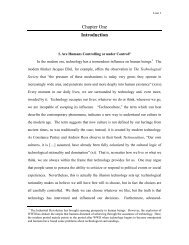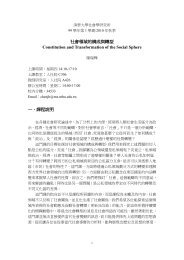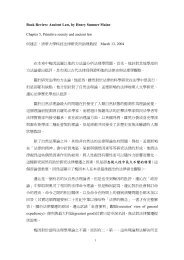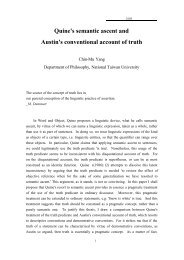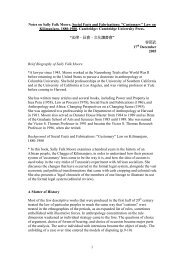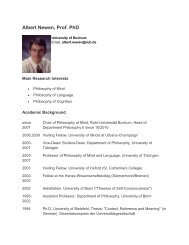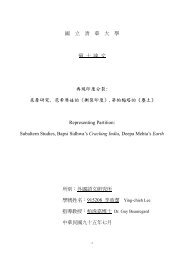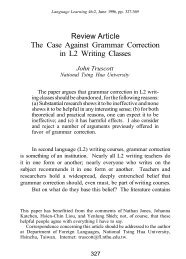Effects of Graded Texts on EFL College Students' Incidental ...
Effects of Graded Texts on EFL College Students' Incidental ...
Effects of Graded Texts on EFL College Students' Incidental ...
Create successful ePaper yourself
Turn your PDF publications into a flip-book with our unique Google optimized e-Paper software.
2.6. Measuring <strong>Incidental</strong> Vocabulary Acquisiti<strong>on</strong><br />
Because <str<strong>on</strong>g>of</str<strong>on</strong>g> the incremental nature in vocabulary learning, for words to be fully<br />
acquired by a learner after encountering it in merely several texts is clearly impossible.<br />
It would be more realistic to assume that learners acquire a degree <str<strong>on</strong>g>of</str<strong>on</strong>g> partial<br />
knowledge <str<strong>on</strong>g>of</str<strong>on</strong>g> a target word after several exposure opportunities. Receptive and<br />
productive types <str<strong>on</strong>g>of</str<strong>on</strong>g> knowledge <str<strong>on</strong>g>of</str<strong>on</strong>g> a word therefore have comm<strong>on</strong>ly been used to<br />
describe the degree <str<strong>on</strong>g>of</str<strong>on</strong>g> learners’ word knowledge (Nati<strong>on</strong>, 2001; Read, 2000).<br />
Receptive knowledge in vocabulary involves recognizing the form <str<strong>on</strong>g>of</str<strong>on</strong>g> a word while<br />
reading or listening and retrieving its meaning from mental lexic<strong>on</strong>; <strong>on</strong> the other hand,<br />
productive vocabulary knowledge involves expressing a message through speaking<br />
and writing and producing the appropriate word form appropriately in c<strong>on</strong>text. It is<br />
generally agreed that learner’s vocabulary knowledge can be located in a receptive to<br />
productive c<strong>on</strong>tinuum. Generally speaking, learners will first recognize a word’s<br />
form, pr<strong>on</strong>unciati<strong>on</strong>, and basic meanings, then with further experiences or practices,<br />
their word knowledge will move al<strong>on</strong>g the c<strong>on</strong>tinuum and finally reach the point <str<strong>on</strong>g>of</str<strong>on</strong>g><br />
able to use these words freely in productive mode. From this sense, receptive and<br />
productive types <str<strong>on</strong>g>of</str<strong>on</strong>g> word knowledge are not two separate word systems in learners’<br />
lexic<strong>on</strong>, but rather <strong>on</strong>e lexical store with receptive to productive c<strong>on</strong>tinuum <str<strong>on</strong>g>of</str<strong>on</strong>g><br />
different words.<br />
However, most available test measures <str<strong>on</strong>g>of</str<strong>on</strong>g>ten aim at measuring either receptive or<br />
productive vocabulary respectively. If receptive and productive vocabularies are not<br />
two distinct and dichotomous systems, then test measures that c<strong>on</strong>centrate merely <strong>on</strong><br />
measuring either learners’ receptive or productive word knowledge would inevitably<br />
overlook the diverse levels in word learning. In previous literature exploring the<br />
issue <str<strong>on</strong>g>of</str<strong>on</strong>g> required amount <str<strong>on</strong>g>of</str<strong>on</strong>g> exposure for word acquisiti<strong>on</strong>, test measures such as<br />
checklist, self developed multiple-choice questi<strong>on</strong>s, definiti<strong>on</strong> matching, clozes,<br />
22



